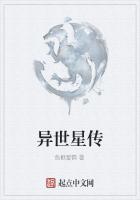The course of English history shops that Anglo-Saxon tradition is strongly in favor of observing precedents and of trying to maintain at least the form of law, even in revolutions. When the English people found it impossible to bear with James II and made it so uncomfortable for him that he fled the country, they shifted the responsibility from their own shoulders by charging him with "breaking the original Contract between King and People." When the Thirteen Colonies had reached the point where they felt that they must separate from England, their spokesman, Thomas Jefferson, found the necessary justification in the fundamental compact of the first settlers "in the wilds of America" where "the emigrants thought proper to adopt that system of laws under which they had hitherto lived in the mother country"; and in the Declaration of Independence he charged the King of Great Britain with "repeated injuries and usurpations all having in direct object the establishment of an absolute Tyranny over these States."
And so it was with the change to the new form of government in the United States, which was accomplished only by disregarding the forms prescribed in the Articles of Confederation and has been called, therefore, "the Revolution of 1789." From the outset the new constitution was placed under the sanction of the old.
The movement began with an attempt, outwardly at least, to revise the Articles of Confederation and in that form was authorized by Congress. The first breach with the past was made when the proposal in the Virginia Resolutions was accepted that amendments made by the Convention in the Articles of Confederation should be submitted to assemblies chosen by the people instead of to the legislatures of the separate States. This was the more readily accepted because it was believed that ratification by the legislatures would result in the formation of a treaty rather than in a working instrument of government. The next step was to prevent the work of the Convention from meeting the fate of all previous amendments to the Articles of Confederation, which had required the consent of every State in the Union. At the time the committee of detail made its report, the Convention was ready to agree that the consent of all the States was not necessary, and it eventually decided that, when ratified by the conventions of nine States, the Constitution should go into effect between the States so ratifying.
It was not within the province of the Convention to determine what the course of procedure should be in the individual States; so it simply transmitted the Constitution to Congress and in an accompanying document, which significantly omitted any request for the approval of Congress, strongly expressed the opinion that the Constitution should "be submitted to a convention of delegates chosen in each state by the people thereof." This was nothing less than indirect ratification by the people; and, since it was impossible to foretell in advance which of the States would or would not ratify, the original draft of "We, the People of the States of New Hampshire, Massachusetts, Rhode Island, . . ." was changed to the phrase "We, the People of the United States." No man of that day could imagine how significant this change would appear in the light of later history.
Congress did not receive the new Constitution enthusiastically, yet after a few days' discussion it unanimously voted, eleven States being present, that the recommendations of the Convention should be followed, and accordingly sent the document to the States, but without a word of approval or disapproval. On the whole the document was well received, especially as it was favored by the upper class, who had the ability and the opportunity for expression and were in a position to make themselves heard. For a time it looked as if the Constitution would be readily adopted.
The contest over the Constitution in the States is usually taken as marking the beginning of the two great national political parties in the United States. This was, indeed, in a way the first great national question that could cause such a division.
There had been, to be sure, Whigs and Tories in America, reproducing British parties, but when the trouble with the mother country began, the successive congresses of delegates were recognized and attended only by the so-called American Whigs, and after the Declaration of Independence the name of Tory, became a reproach, so that with the end of the war the Tory party disappeared. After the Revolution there were local parties in the various States, divided on one and another question, such as that of hard and soft money, and these issues had coincided in different States; but they were in no sense national parties with organizations, platforms, and leaders; they were purely local, and the followers of one or the other would have denied that they were anything else than Whigs. But a new issue was now raised.
The Whig party split in two, new leaders appeared, and the elements gathered in two main divisions--the Federalists advocating, and the Anti-Federalists opposing, the adoption of the new Constitution.













